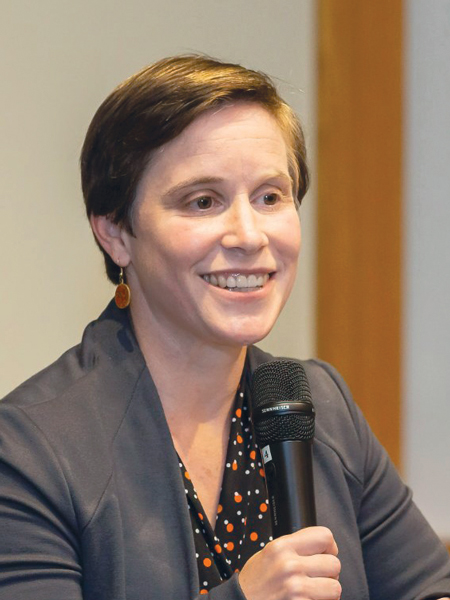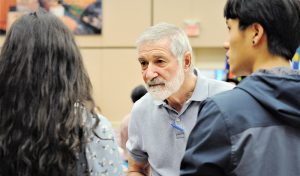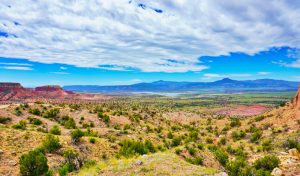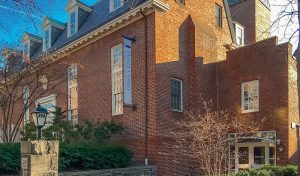Living Buddhism spoke with Karen Ross, associate professor in the Department of Conflict Resolution, Human Security and Global Governance at the University of Massachusetts Boston. Dr. Ross’s research has focused on peace building, social activism and education. For the last 15 years, she has worked on issues related to the Israeli- Palestinian conflict, peace education, inter-group dialogue and racial justice.

Living Buddhism: Professor Ross, thank you for taking the time to speak with us. We hear you’ve been working closely with the Ikeda Center for Peace, Learning, and Dialogue, engaging with Daisaku Ikeda’s lecture, “Mahayana Buddhism and Twenty-First Century Civilization.” How did you come across his work?
Karen Ross: I met Ikeda Center Director Kevin Maher and others at a conference several years ago and started engaging in conversation more frequently in the last two or three years. In the process, I’ve learned more about the Buddhist approach to global issues and have recently been diving into the 1993 lecture at the Ikeda Center’s Global Citizens Seminar.[1]
How have you related the topics in Mr. Ikeda’s lecture to your research?
Ross: A lot of my work in peace building and dialogue has revolved around the Israeli-Palestinian conflict. My initial immersion into thinking about dialogue was with Israeli and Palestinian scholars regarding the possibilities and limitations of dialogue. I was also inspired by the ideas of Jurgen Habermas, who introduced the “ideal speech situation,” discussing the force of speech that comes purely from the subject, independent of power dynamics. I’ve also delved a lot into Martin Buber and his notions of how relations between the self and other affect dialogue. And in Ikeda’s lecture, I was struck by the idea of interconnectedness that is central to Buddhist causality and something that ties strongly to my field and readings on dialogue and relationships.
Do you see a relationship between Ikeda’s perspective on death and developing a broader consciousness of the self?
Ross: We spent a large portion of our discussion on this idea of death in the Global Citizens Seminar. Our western cultural norm is to not talk about difficult things with children, like death, for example. We don’t want to expose them to negative things. It’s a binary, dividing things into good and evil, such as light and dark, life and death, and so on. So, to me, this perspective on death as part of a continuum of life speaks to this idea of interconnectedness, and challenges binary notions in general. We shouldn’t see things as binaries, like one group as evil and another as good. Our challenge is to see more points of connection and similarities. Also, Ikeda’s perspective of death signifies accepting the unknowns and not being afraid of them. There are many phenomena we will never know, that are unmeasurable, and our capacity to engage with the
unknown is fundamental to achieving peace. If we shun that which we can’t fully understand, we can’t develop tolerance toward others.
If I frame this in terms of my field, there’s a letting go of those parts of our identity built on negating the other. In the case of Israel and Palestine, for example, there’s a whole worldview in each society built on negating the other side. But for those unwilling to accept those ideas and wanting to better understand across the divide, they put themselves at risk and venture into unknown territory.
What can we learn from the episode in the lecture where Shakyamuni Buddha dissuades the minister of Magadha from invading the neighboring state?
Ross: This episode models diplomacy. I think about dialogue as trying to deeply understand the other rather than persuade. Perhaps the Buddha’s persuasion was an indirect result of dialogue. He persuaded the minister to understand his own prejudices.
What were your main takeaways from the lecture?
Ross: I connected strongly with interconnectedness among people and all life on Earth. This opened my mind, as it transcends the rational, scientific worldview that western academics often try to fit in to. Regarding global affairs, the idea of being related in some way to all phenomena says a lot about the need for dialogue and the role dialogue can play in helping us see that. Ultimately, it’s harder to maintain a belief in one’s superiority over others if we see how we’re connected. Also, the discussion of life and death is something I can’t stop thinking about. It’s not reflected at all in conversations in my field. I feel this concept connects a lot of pieces together. I remember that at the Global Citizens Seminar, one of the participants was talking about how death is a celebration in her culture, an opportunity for those who love that person to be together and celebrate that person’s life. Death doesn’t have the negative characteristic it has in our society and made me think about how learning different cultural perspectives on these topics can support dialogue and peace building efforts. I think there is a lot that Western academic studies around peace, conflict and dialogue can gain from Ikeda’s ideas.
Thirty years after this lecture and with the great challenges humanity has faced across the world, what is your hope for the remainder of the 21st century?
Ross: I think it’s important for more people to be in the world as Ikeda framed it in ’93. We are facing the nuclear threat and climate change, major threats to our planet’s survival. But, I do believe there are ways of being in the world and taking action to effect change. As someone in the peace building field, hope is our fundamental characteristic. It’s important to understand our interconnectedness and see beyond ourselves and immediate groups. And I’ve been so encouraged by the participants in the Global Citizens Seminar, who are reflective of these ideals. They are graduate students from a range of fields, coming together with the motivation to move us toward interconnectedness and understanding. Observing the next generation of students, they are so focused on addressing global threats and the inequities in society. These students have a much more nuanced understanding of social issues than the previous generation, and I’ve been really inspired by them.
References
- Global Citizens Seminar: This seminar hosted by the Ikeda Center for Peace, Learning, and Dialogue provides a platform for young scholars to engage in dialogue across disciplines and tackle the pressing issues of our time. ↩︎
You are reading {{ meterCount }} of {{ meterMax }} free premium articles





